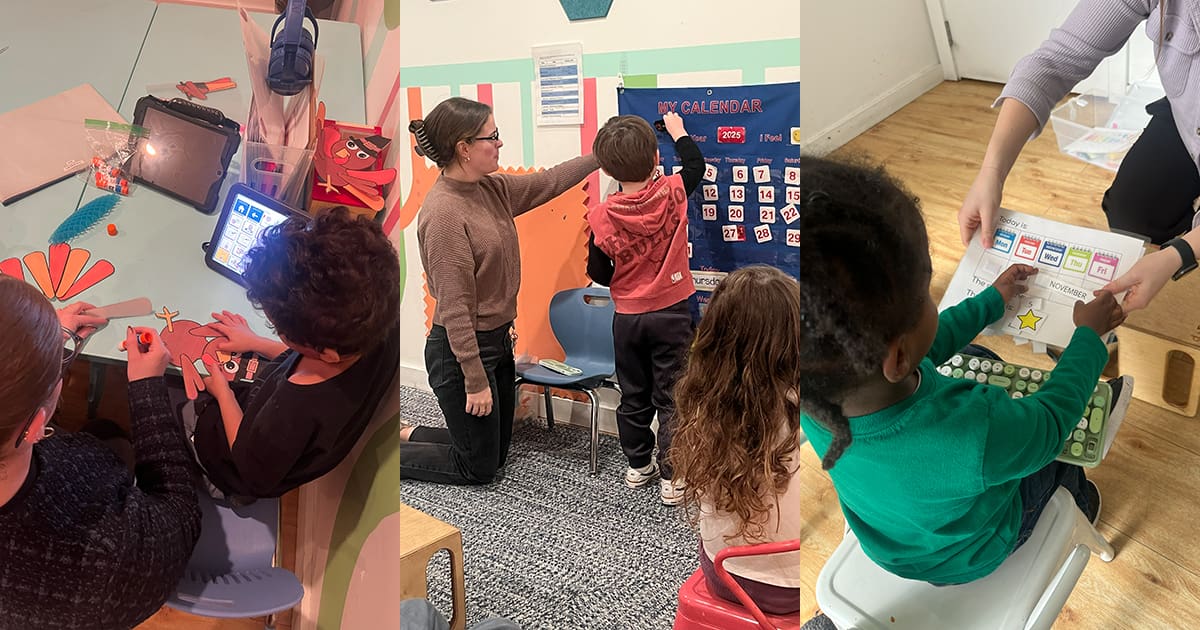Share this Post

When a child begins therapy, whether for speech, occupational, behavioral, or another area of development, parents often wonder how to keep them engaged and motivated. Therapy is most effective when children feel invested in their progress, understand their goals, and develop a sense of accomplishment in their achievements.
At CST Academy, we believe that helping children feel accountable and accomplished in therapy builds confidence, motivation, and long-term success. With the right support and encouragement, children can develop a positive attitude toward therapy and recognize their own progress.
Why Accountability and Accomplishment Matter in Therapy
Children thrive when they feel a sense of ownership over their learning and development. When therapy is something they actively participate in, rather than something they are simply required to do, they are more likely to stay engaged and make meaningful progress.
Encouraging accountability and accomplishment in therapy helps children:
- Feel proud of their achievements, no matter how small
- Stay motivated to practice skills and work toward goals
- Develop independence and self-confidence
- Understand the purpose of therapy and how it helps them
- Build resilience and perseverance when facing challenges
By incorporating strategies that foster accountability and celebrate accomplishments, parents and therapists can create a positive, empowering experience for children.
Strategies to Help Your Child Feel Accountable and Accomplished in Therapy
1. Set Clear, Achievable Goals
Children feel more invested in therapy when they understand what they are working toward. Setting clear, achievable goals helps them see their progress and recognize their success along the way.
To make goals meaningful for your child:
- Break larger therapy goals into small, manageable steps
- Use simple, child-friendly language to explain what they are working on
- Involve your child in setting their own goals when possible
- Provide visual reminders, such as charts or stickers, to track progress
For example, instead of a broad goal like “improve communication skills,” a child might work on “asking for help using words” or “taking turns in a conversation.” These smaller milestones help children see their success more quickly and stay motivated.
2. Make Therapy Fun and Engaging
Therapy should never feel like a chore. When sessions are enjoyable and interactive, children are more likely to participate willingly and stay engaged.
Some ways to make therapy fun include:
- Incorporating games and play-based activities that support therapy goals
- Using songs, movement, or storytelling to make learning more dynamic
- Allowing children to choose between activities when possible to give them a sense of control
- Creating reward systems that celebrate effort and participation
When therapy feels like an exciting part of a child’s routine rather than an obligation, they develop a more positive attitude toward their progress.
3. Encourage Self-Reflection and Praise Effort
Children need to recognize their own growth to feel accomplished. Encouraging self-reflection helps them understand what they have learned and how they have improved.
To support self-reflection:
- Ask open-ended questions like “What was your favorite part of therapy today?” or “What was something new you tried?”
- Encourage your child to describe their progress in their own words
- Acknowledge their efforts, even if they are still working toward mastering a skill
Instead of focusing only on results, praise the effort they put in. Statements like “I love how hard you worked on that today” or “You were so patient when practicing your words” reinforce a sense of accomplishment regardless of the outcome.
4. Create a Routine and Structure for Therapy
Consistency helps children feel secure and confident in therapy. A predictable routine allows them to know what to expect and prepares them mentally for their sessions.
To establish a structured approach:
- Set a regular schedule for therapy sessions to create stability
- Have a designated therapy space at home if practicing outside of sessions
- Use visual schedules or timers to help children transition smoothly into therapy time
- Encourage practice at home through short, manageable activities
When children see therapy as a natural part of their routine, they become more engaged and take greater responsibility for their participation.
5. Celebrate Achievements, Big and Small
Acknowledging a child’s progress, no matter how small, reinforces their sense of accomplishment. Positive reinforcement encourages continued effort and helps children feel proud of what they have achieved.
Ways to celebrate progress include:
- Keeping a progress journal to note improvements over time
- Using sticker charts or reward systems for completed tasks
- Setting up a “proud moment” board where children can showcase their achievements
- Taking time to reflect on how far they have come in their therapy journey
Celebrating milestones helps children feel valued and reminds them that their hard work is making a difference.
How Parents Play a Key Role in Their Child’s Success
Parental involvement is one of the most important factors in helping children feel accountable and accomplished in therapy. The support and encouragement children receive at home reinforce the skills they are learning in their sessions.
To be an active part of your child’s therapy journey:
- Stay informed about their therapy goals and progress by communicating with their therapist
- Practice therapy strategies at home in a fun and relaxed way
- Be patient and supportive, offering encouragement rather than pressure
- Help your child recognize their progress by pointing out improvements in everyday situations
When parents and therapists work together as a team, children feel more supported and empowered in their development.
Helping Your Child Build Confidence and Success in Therapy
Therapy is not just about improving specific skills—it is about helping children feel confident, capable, and proud of their achievements. By setting clear goals, making therapy engaging, encouraging self-reflection, maintaining consistency, and celebrating progress, parents can help children take ownership of their therapy journey.
At CST Academy, we are dedicated to creating a positive and supportive therapy experience for every child. If you are looking for ways to help your child stay motivated and engaged in their therapy, our team is here to guide you. Contact CST Academy today to learn more about how we can support your child’s growth and success.
Discover Our Pediatric Therapy & Autism Care
ABA Therapy
Support for children with autism.
Autism Evaluation
Expert assessments to identify child needs.
Pediatric Therapy Services
Speech, Occupational, Feeding, and Physical Therapy.
Therapeutic Preschool
A classroom environment designed for early learners with unique needs.

Find the Best Care for Your Child




